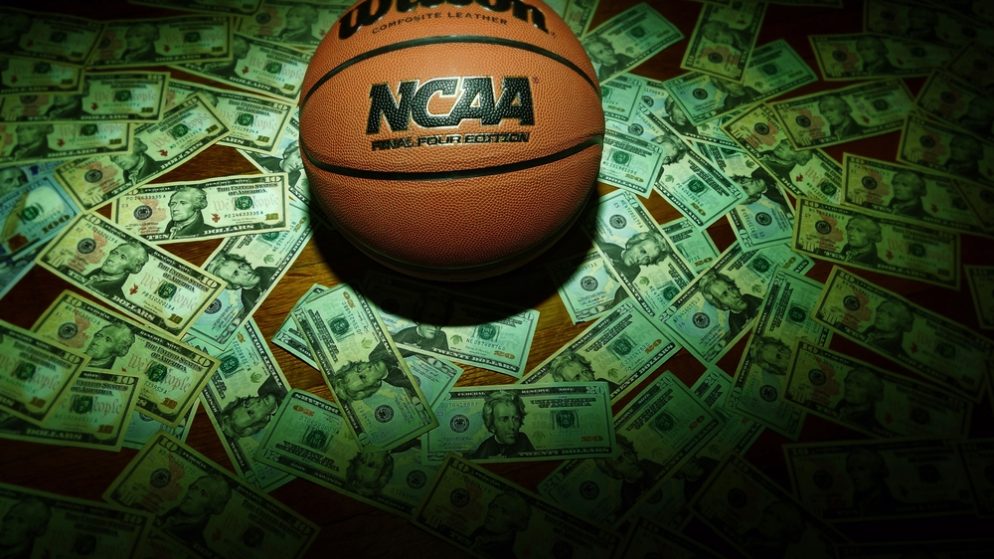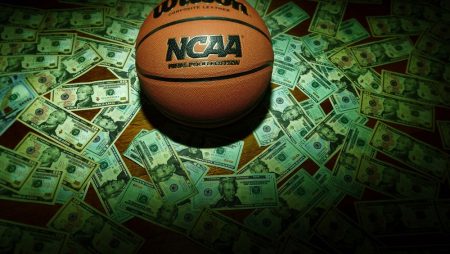

The legalization of sports betting has swept across the United States, creating a financial behemoth that has significantly impacted college athletics. In 2022 alone, sports betting generated more than $6.5 billion, with over $83 billion wagered, according to Forbes.
This influx of revenue has undoubtedly been a boon for athletic departments, providing them with resources to invest in facilities, coaches, and student-athlete support services. However, the rise of sports betting has also brought with it concerns about potential harm to the integrity of college competitions and the well-being of student-athletes.
Among the most concerning elements are prop bets, which allow gamblers to wager on specific individual or team events within a game. These bets go beyond traditional wagers on the game outcome, directly involving individual player performance and creating opportunities for manipulation and exploitation.
Off the back of this background, NCAA president Charlie Baker has raised valid concerns regarding the growing popularity of prop bets in the emerging US sports betting market. Ever since assuming the role of president of the NCAA earlier this year, the former governor of Massachusetts has expressed increasing concern regarding the influence of legalized gambling on college athletes and the integrity of amateur sports.
His primary concern lies in the potential for prop bets to incentivize unethical behavior, such as point shaving or other forms of game manipulation. He fears that the lure of financial gain might tempt individuals, including students, coaches, or even unscrupulous fans, to engage in actions that could undermine the fairness and integrity of the competition.
What we cover
Calling for State-Backed Restrictions on Prop Bets
As legalized sports betting continues to expand across the United States, questions have arisen about its potential impacts on amateur competitions. One area of special focus is the rise of proposition bets that allow wagers on granular in-game events rather than overall game results. According to NCAA’s Charlie Baker, these hyper-targeted bets may unintentionally increase pressure on student athletes if not properly regulated.
Since taking over the helms of the NCAA, Baker has emerged as a vocal critic of prop bets in college sports. He believes these bets pose a significant threat to student-athlete safety and the overall integrity of games.
In interviews with major news outlets, the New York native outlined his concerns that prop bets concentrating on individual performances could undermine the well-being of college players. With large sums sometimes risked on minute outcomes directly involving a single student, Baker worries this may lead to inappropriate influence attempts or even compromises of competitive integrity.
He cited the example of a peer approaching a player and requesting they purposefully miss shots or commit errors to aid a wager. Baker further highlights the risk of student-athletes being pressured to share insider information or perform in specific ways to influence the outcome of prop bets. This pressure could potentially lead to anxiety, depression, and other mental health issues for athletes, jeopardizing their well-being and academic performance.
Baker and the NCAA believe action must be taken to better safeguard amateur competitors from such risks. Their position is that legislative changes at the state level are needed to prohibit or restrict prop betting as it relates to collegiate sports events and the performances of student-athletes therein.
By working with state gaming regulators and operators, the NCAA hopes to enact policies that preserve the primary educational focus of college athletic programs.
A Battle for Balance: Financial Sustainability versus Ethical Concerns
The NCAA faces a complex challenge in balancing its financial needs with the ethical considerations surrounding prop bets. While the revenue generated from sports betting provides valuable resources for athletic programs, it is crucial to ensure that this income does not come at the cost of athlete safety and the integrity of the games.
Finding a solution that protects athletes while ensuring the financial sustainability of athletic programs will require careful consideration and collaboration between the NCAA, state legislators, and other stakeholders. This may involve exploring alternative revenue streams, implementing stricter regulations on sports betting, and prioritizing the well-being of student-athletes in every decision made.
Forging Forward with a Balanced Approach
The future of prop bets in college sports remains uncertain. Baker’s call for a ban has garnered significant support, with many athletes, coaches, and academics expressing concerns about the potential for harm.
However, others argue that prop bets are simply another form of entertainment and should not be prohibited. Ultimately, the fate of prop bets will rest in the hands of state legislators, who will need to weigh the various arguments and decide what is best for college athletics and its athletes.
Educational initiatives are also key to equipping young athletes to navigate this evolving landscape safely. For instance, the state legislators in New Jersey have tabled a bill that would require gambling education at colleges in collaboration with sportsbooks.
The NCAA’s recent rule updates to modestly relax betting penalties for students also shows their desire for a nuanced, multi-pronged strategy. There remains an ongoing discussion around finding the right regulatory framework to maximize the benefits of sports wagering while fully protecting amateur players and competitions.
The coming months will likely see continued discussion and debate as stakeholders grapple with this complex issue. The NCAA will need to demonstrate its commitment to protecting student-athletes and upholding the integrity of games, while also exploring alternative solutions for ensuring the financial sustainability of athletic programs.
Wrapping Up
The concerns raised by the NCAA president around prop bets targeting student performances deserve consideration from all stakeholders. With open dialogue and compromise, it may be possible to both support college sports fans’ betting interests and uphold the integrity of games and well-being of amateur athletes. Only through careful consideration and collaborative efforts can a solution be found that strikes a balance between financial needs and ethical considerations, protecting the safety of athletes.





